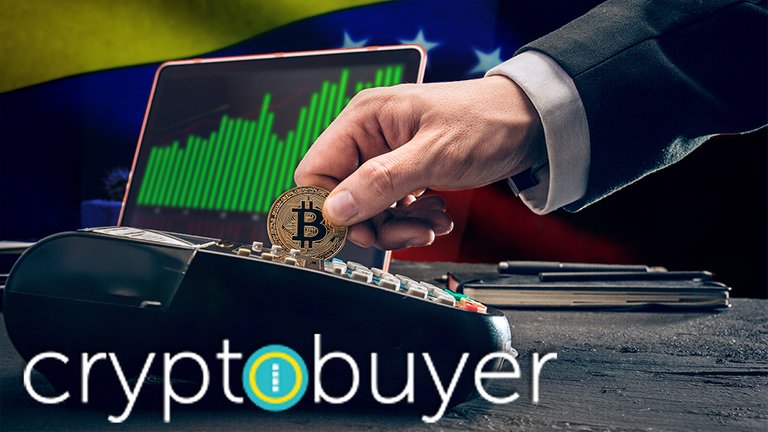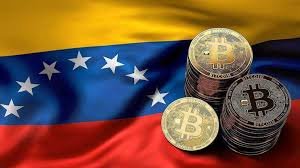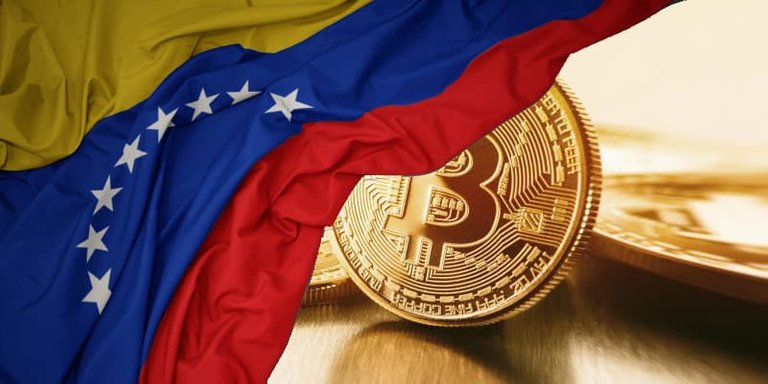In the year since the COVID-19 pandemic destroyed almost every aspect of our lives, a lot has happened in the crypto ecosystem around the world. So, what was the cryptocurrency situation like in Venezuela last year?
Even before 2020, Venezuela has already had a number of businesses accepting various cryptocurrencies as payment methods. However, more businesses adopted this payment method last year.
This includes everything from the hotel industry to the famous pizza chain Pizza Hut, which announced that it will accept Bitcoin (BTC), Litecoin (LTC), Dash and other cryptocurrencies as payment methods.
In mid-2020, cryptocurrency exchange Cryptobuyer and payment processor Mega Soft announced that they will form an alliance to enable approximately 20,000 merchants using their services to accept cryptocurrency payments through the Cryptobuyer Pay solution developed by the exchange.

Image
Another important milestone was in September 2020, when a Bitcoin node was connected to the Blockstream satellite network, which is unprecedented in Venezuela.
As a result of the joint efforts of Cryptobuyer and crypto education provider AnibalCripto, the node can still be used normally despite logistical restrictions imposed by isolation measures related to the COVID-19 pandemic.
Similarly, the head of the node announced that this is the first step in building a mesh network that does not require an Internet connection to process bitcoin transactions.
Despite the current economic crisis in Venezuela, the cryptocurrency mining industry has been growing.
According to the Cambridge Bitcoin Energy Consumption Index, Venezuela is the Latin American country that contributes the most to the Bitcoin hash rate, which means that the country is generating a lot of computing power.
However, Venezuela introduced new regulations for the country's mining industry in September 2020. In addition to establishing a mandatory registry and setting new taxes for people working with mining-related departments, the new law also introduces a controversial "national digital mine."

Image
Under this new requirement, miners must contribute their hashing power to the new state-backed mining pool.
Overall, the question of mining pools has no real clear meaning, meaning that how the law is implemented is unclear and exactly how Venezuelan miners will participate has not been revealed.
While it seems counterintuitive to see such a high level of government support for cryptocurrencies, and the government generally considers its restrictions on citizens and their freedoms to be very tight, it is still possible to see some experimentation with cryptocurrencies last year, including allowing Venezuelans to pay. fees. s plan. Bitcoin passport using payment processor BTCPayServer.
However, although Nicolas Maduro's government ultimately did not implement the passport plan, its vision for cryptocurrency use has not diminished.
Maduro (Maduro) proposed an anti-sanctions bill in September 2020, seeking to use cryptocurrency to evade various sanctions imposed on the country, and hopes to promote the use of cryptocurrency in various business activities.
More specifically, there are reports that the Maduro government is using Bitcoin to promote trade between Iran and Turkey. Iran and Turkey are the state's two main geopolitical allies.
According to reports, in November 2020, the Venezuelan Army decided to open the Venezuelan Bolivarian Army's Digital Asset Production Center, which is equipped with ASIC mining equipment designed for proof-of-work cryptocurrencies to generate unlockable financial income.
All the progress the Venezuelan country has made in the cryptocurrency ecosystem has been to seek solutions to circumvent the sanctions imposed by the United States on Maduro, his cabinet and senior military commanders.

Image
However, U.S. authorities have stated that they are monitoring the cryptocurrency business in Venezuela, and in June 2020, they even added Venezuela's top authority over the cryptocurrency ecosystem to their cryptocurrency administrators, becoming the most wanted in the United States.
The bullish rally in Bitcoin prices, coupled with the rapid devaluation of the Venezuelan legal tender, has resulted in a record number of Bolivianos exchanged for Bitcoin.
In the first week of December 2020 alone, peer-to-peer exchange platform LocalBitcoins exchanged 5.85 billion bolivars on the platform. By the first week of February, this figure had risen to 8.56 billion bolivars.
Venezuela's complicated political and economic situation has led the government to consider other solutions. In this case, blockchain technology and cryptocurrencies stand out in particular.
Maduro is not the only one who sees cryptocurrency as a way out of trouble.
One of his main opponents is Juan Guaidó, president of the National Assembly, recognized as the legitimate president of Venezuela by some 60 countries. The country used the stable U.S. dollar currency (USDC) to evade financial restrictions imposed by the Maduro government.
The funds used by Guaidó come from assets seized by US authorities from Venezuelan state-owned companies and several members of the Maduro government in US bank accounts.
Due to the difficult situation generated by COVID-19, we have learned a lot: do not rely on the presence of the body to promote the harmonious development of our society.
Local mining laws provide a precedent for other countries' evaluation and consideration.
With the integration of cryptocurrency payments into the retail chain and the development of fast and secure fiat currency to cryptocurrency exchange processes.
You mine on the pool of the government! What a joke!
Undoubtedly, cryptocurrencies have saved the country from a worse debacle and the use of these locally, although limited, has been growing, without adding that thousands of thousands of Venezuelans maintain our household economy with the gain of cryptocurrencies in various tasks we perform through the Internet, which is why many companies that offer fiber optic services and that are independent of the government have made their appearance, giving a respite to users who suffer the increasingly worse service provided by the state in this regard. Not to mention the Petro and other national tokens such as the bolivarcoin. @tipu 2
Very true thank goodness these cryptocurrencies exist and we can support ourselves, but it is worrying how others have none and try to support themselves on a daily basis. No doubt as you say it helps us as well as the government.
That's right, cryptocurrencies have not only given relief to the common Venezuelan but also to the government, which has used this tool to evade sanctions and avoid an even greater crisis.
As it is, it helps both the good and the bad.
@tipu curate 2
Upvoted 👌 (Mana: 120/150) Liquid rewards.
Conozco Cryptobuyer es de gran contribución para el desarrollo del cifrado. Información complementaria y bien desarrollada,
Saludos @suanky
lo felicito
Saludos @nachomolina2 gracias por el apoyo y comentario.